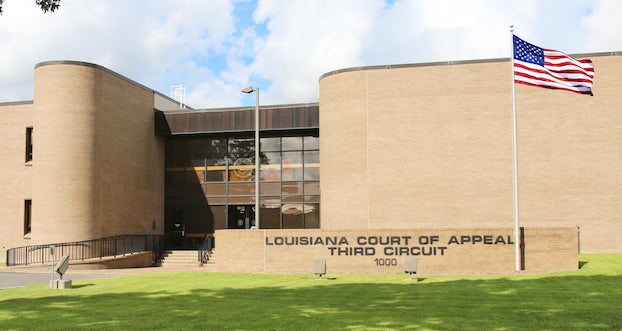Calcasieu DA discusses approach to DWI punishment
Published 8:24 pm Saturday, December 7, 2013
The pendulum of DWI punishment has swung far both ways, said Calcasieu Parish District Attorney John DeRosier. Two decades ago, those convicted of third- and fourth-offense DWI would regularly receive 10- to 15-year prison terms, he said. In the late 1990s and early 2000s, the pendulum swung toward rehabilitation, he said.
But neither long prison sentences nor rehabilitation by itself has worked well, so officials are now seeking some middle ground, DeRosier said — a chance at rehabilitation, then time in prison, if rehab fails.
“We’re shifting back now toward the center,” he said. “We have no alternative at this point but to kick it up a notch relative to putting people in prison when they just will not quit drinking and driving.
“The reason behind this is not to put people in jail. The reason behind this is to get impaired drivers off of the highways.”
Some people will drive impaired as long as they are on the streets, but others will be so scared and embarrassed by a DWI that they will never do so again, DeRosier said.
When the pendulum began to swing in the late ’90s, legislators and officials began to put more rehabilitation into DWI statutes, he said.
Rehabilitation is “fine and can work when you do it,” but the proper structures were never put into place for people to receive adequate counseling, DeRosier said.
“As a result of that, you see a continued increase in DWIs, say from the early 2000s to where we are today, until we started getting a little tougher again,” he said.
In the past five years, mandatory minimum sentences were raised for both misdemeanor and felony DWIs (third and fourth offenses), he said.
DeRosier said a regimented, strict treatment program, such as Calcasieu’s drug court, which lasts about a 1 1/2 years, is the first step. But if that doesn’t work, there has to be a “fail-safe plan,” he said.
“We’re holding people’s feet to the fire when they continue to go out and get DWIs and continue to endanger the public,” he said.
DeRosier said it often takes time to bring DWI charges to trial, and that can lead to more DWI arrests. Some judges set high bonds for DWIs and some set low bonds, he said. Just by doing nothing, a DWI suspect can slow the judicial system, DeRosier said.
“Then you run into a second set of problems” getting a trial date, he said. “We use the same trial dates that we use for homicides, rapes or armed robbery and child molestation, and those things all have priority.
“Sometimes they can gather up two or three or four DWIs before we can get them into that courtroom, no matter how hard we try,” DeRosier said.
He said there’s also an issue at the state level: When misdemeanor DWI offenders get their charges removed from the record as part of plea deals, they are allowed to get their licenses back while on probation.
“I have proposed legislation that will cure that problem, and it will make it very clear” that licenses are suspended until probation ends, DeRosier said.
“It has always been my intention to maneuver the state DWI statutes into a more progressive order,” he said.
The primary goal, DeRosier said, is to keep impaired drivers off the streets. “We’re going to do everything we can to eliminate the problem,” he said. “But if we can’t, we’re going to put them in jail.
“Fifteen years — that’s a tough lesson somebody has to learn for drinking and getting behind the wheel of an automobile, but if that’s what it takes to show everybody else that this behavior is not going to be tolerated, then we’re willing to do that.”
(Special to the American Press)




